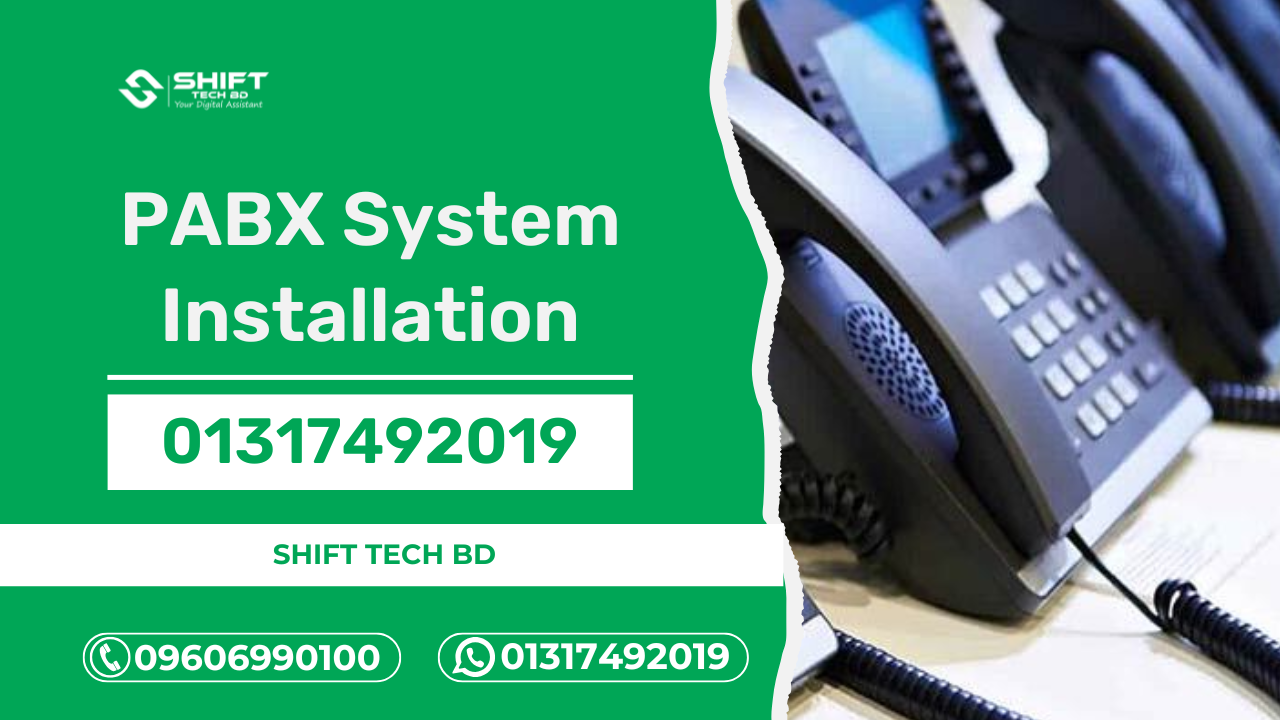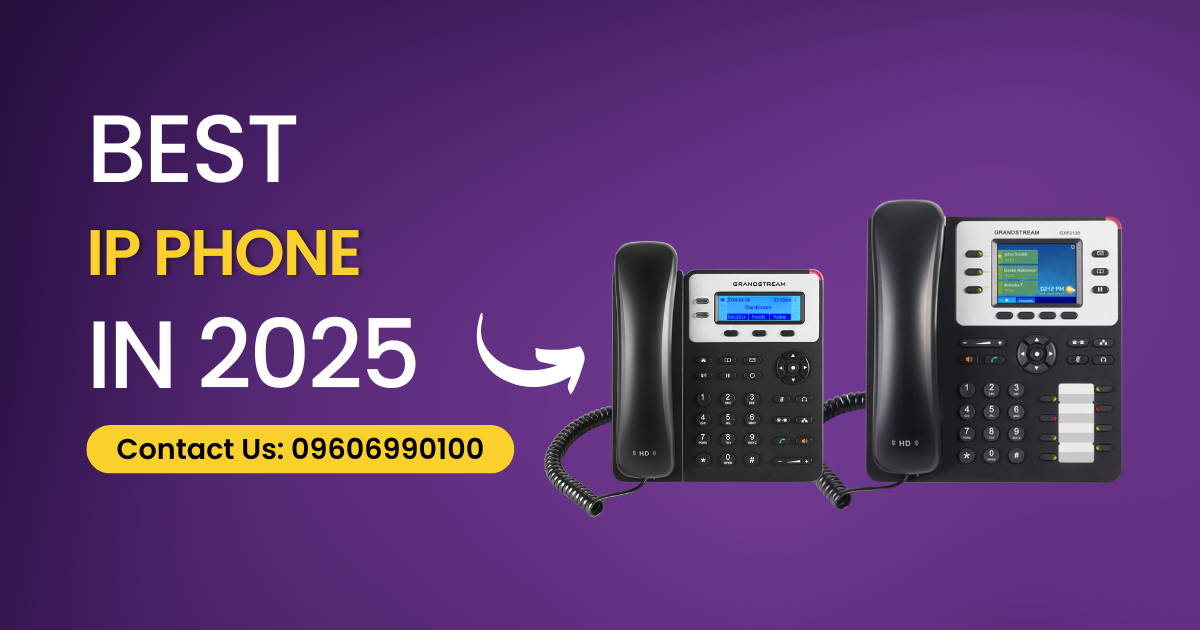PABX System Installation in Bangladesh
What is PABX?
PABX (Private Automatic Branch Exchange) is a private telephone network used within a company or organization. It allows internal communication between employees and external communication with the outside world through various communication channels like VoIP, ISDN, or analog. It automates the switching of calls between users, making internal and external communication seamless and cost-effective.
Key Features of PABX Systems
- Call Routing and Switching: Automatically routes incoming and outgoing calls to the correct extensions.
- Voicemail: Enables users to leave messages when unavailable.
- Call Forwarding and Transfer: Redirects calls to another extension or mobile number.
- Interactive Voice Response (IVR): Provides automated voice menus to direct calls efficiently.
- Conference Calling: Facilitates group calls between multiple parties.
- Call Recording: Captures conversations for quality assurance and training purposes.
- Scalability: Can grow with the organization by adding extensions.
- Security: Includes features like encrypted calls and access control.
- Integration: Compatible with CRM systems and other enterprise tools.
- Cost Efficiency: Reduces phone bills by leveraging VoIP and other cost-saving technologies.
Types of PABX Systems
- Traditional/Analog PABX: Uses traditional phone lines and manual switching.
- IP-PBX: Operates over the internet using VoIP technology.
- Hybrid PABX: Combines analog and digital systems for enhanced flexibility.
- Cloud-Based PABX: Hosted in the cloud, requiring no physical hardware on-site.
Benefits of Using PABX Systems
- Enhanced Communication: Streamlines both internal and external communication.
- Reduced Costs: Minimizes costs for internal calls and leverages VoIP for external calls.
- Improved Productivity: Provides features like call forwarding and voicemail for efficient work management.
- Flexibility and Scalability: Adapts to the growing needs of the organization.
- Integration with Modern Tools: Easily integrates with CRM systems and other software.
Applications of PABX
- Corporate Offices: To manage large volumes of calls and enhance internal communication.
- Call Centers: To handle customer inquiries efficiently.
- Healthcare Facilities: To connect departments and facilitate emergency communication.
- Hotels and Hospitality: To manage guest calls and internal communication.
- Educational Institutions: To connect administrative offices and departments.
How to Choose the Right PABX System
- Determine the Size of Your Organization: The number of extensions and users will dictate the type of system.
- Consider Future Growth: Choose a scalable system to accommodate growth.
- Evaluate Features: Look for necessary features like IVR, call forwarding, and voicemail.
- Decide Between On-Premises or Cloud-Based: On-premises systems offer control, while cloud systems are more cost-efficient.
- Budget Consideration: Compare the cost of installation, maintenance, and upgrades.
- Vendor Support: Ensure the vendor provides adequate support and maintenance services.
How to Set Up a PABX System
- Identify Your Needs: Understand the number of users, extensions, and features required.
- Select a Vendor: Choose a reliable supplier based on reviews and support availability.
- Install Hardware: Set up the PBX hardware, including phones and switching systems.
- Configure Software: Integrate VoIP, IVR, and other software settings.
- Test the System: Run tests to ensure smooth call routing and feature functionality.
- Train Employees: Provide training for employees to use the system effectively.
FAQs about PABX Systems
- What does PABX stand for? Private Automatic Branch Exchange.
- How does PABX differ from PBX? PABX is an automated version of the older manual PBX system.
- Can PABX work with VoIP? Yes, IP-PBX systems are designed to work with VoIP technology.
- Is a PABX system suitable for small businesses? Yes, PABX systems can be scaled down to fit the needs of small businesses.
- What is the cost of a PABX system? Prices vary depending on features, size, and type. Small setups start from $200 to $500, while advanced systems can cost thousands.
- What are the maintenance requirements for a PABX system? Regular software updates, hardware checks, and occasional professional servicing.
- What are cloud-based PABX systems? These are hosted online, eliminating the need for on-site hardware.
- Can I integrate PABX with CRM tools? Yes, most modern PABX systems support CRM and other software integrations.
- What is the lifespan of a PABX system? Typically 7–10 years with proper maintenance.


